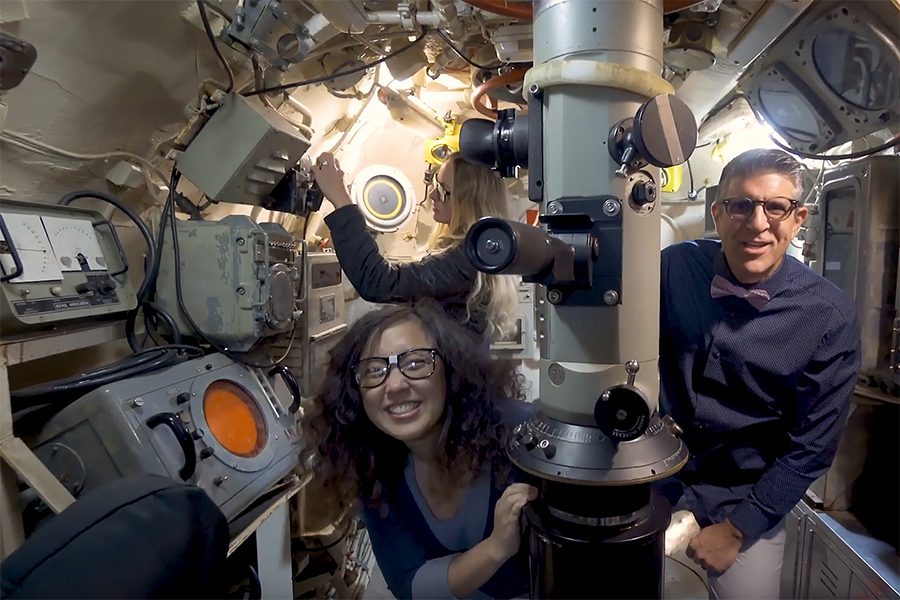
Home » The cheery champion of Tri-City tourism finds good news in sea of bad
The cheery champion of Tri-City tourism finds good news in sea of bad

July 15, 2020
Michael Novakovich is by nature and by profession an optimist.
As president of Visit Tri-Cities, his job is to champion the people, places and things that draw tourists to the Mid-Columbia, to fill its shops, bars, restaurants and hotel rooms.
Visitors spent more than $560 million in Benton and Franklin counties in 2018, according to the bureau’s most recent annual report.
The Covid-19 pandemic has battered few industries more than the ones that rely on tourism spending. The Tri-Cities Airport reported a 95% decline in passenger traffic in April and 87% in May.
Novakovich knows of at least five local hotels, mostly corporate-owned Motel 6 properties, that simply closed when Washington’s Stay Home, Stay Healthy order hit in March.
More than 70% of hotel workers in the U.S. have been laid off or furloughed, according to the American Hotel & Lodging Association, which calculates the loss in tax revenue alone at nearly $17 billion to states and local taxing entities.
Tourism supported 165,000 jobs in Washington in 2019, or 3.5% of the state total, according to the Washington Tourism Alliance. The alliance calculates leisure and hospitality job losses may account for as much as half the 1.2 million unemployment claims filed in Washington in mid-May.
“Obviously, tourism everywhere is adversely impacted in a pretty significant way,” Novakovich said. Locally, $25 million worth of meetings, conventions and sporting events that were scheduled for Tri-City venues have been canceled because of the pandemic.
But Novakovich, the optimist, sees cause for optimism.
The convention marketing team rebooked $8 million of the business, rescheduling some events for later in 2020 and others for future years.
“The sales teams have had some success at multiyear bookings,” he said.
Visit Tri-Cities is working through the Washington Tourism Alliance’s Discover Washington campaign which will push in-state travel. The Tri-Cities has a starring role as a premier outdoors destination packed with wineries, science and fine dining.
In another promising development, the Tri-Cities will host the 2021 North American edition of the Travel Bloggers Exchange (TBEX), which brings 400 to 600 travel writers to town for five days of familiarization tours.
Novakovich called it an “incredible” opportunity to draw attention from writers who reach millions of readers.
Novakovich said he’s encouraged by hotel occupancy rates, which began inching up in May as area residents took “staycations” from staying at home. Some essential business travel has continued. Anecdotally, the return of fishing is helping.
Still, hotel occupancy rates were off by half in June compared to a year ago.
That was before early July, when Washington state allowed Benton and Franklin counties to enter a modified version of Phase 1 of the state’s Safe Start program. The modified phase allows the resumption of some business activities, including al fresco dining when social distancing requirements can be met.
Novakovich is eager to see the Mid-Columbia come to grips with the pandemic. High infection rates could give it a reputation as an undesirable travel destination, something he called “concerning.”
“If we sit in this spot longer than we already have, it’s going to be painful to attract business to the Tri-Cities,” he said. “We’ve got to have safe operating businesses. We have to reopen and restart our economy.”
Visit Tri-Cities pushed hard for the move to a modified Phase 1 and to building consumer confidence that it’s safe to visit local businesses.
It joined the Tri-City Regional Chamber of Commerce, Tri-City Development Council, Benton-Franklin Health District and other entities to form the Open and Safe Coalition.
The coalition is pushing Tri-Citians to wear masks and take other steps to curtail the spread of coronavirus. Businesses that take the open and safe pledge to adhere to health department recommendations are highlighted on electronic maps and have added access to masks, sanitizers, touchless thermometers and other protective gear.
Local News Hospitality & Meetings
KEYWORDS july 2020





